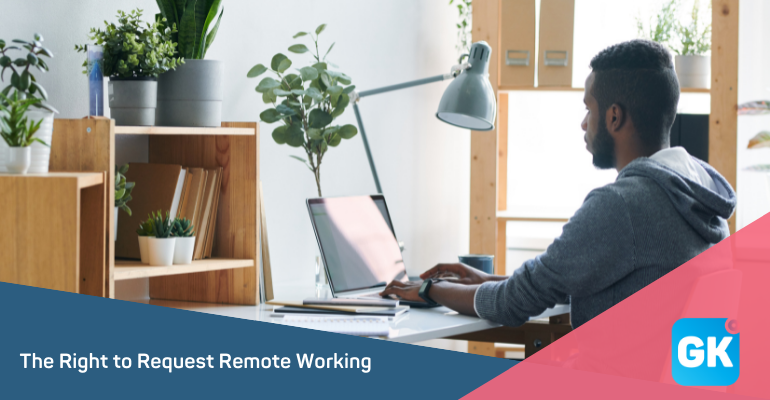The Right to Request Remote Working

The Right to Request Remote Working
On September 20th, workers returned to the workplace on a phased and staggered basis. However, after October 22nd, 2021, the requirement to work from home will be removed. A return to physical attendance in workplaces will be allowed on a phased and cautious basis. Employers must ensure the safety, health, and welfare at work of all their employees. Employees also have responsibilities when they are working from home.
National Remote Working Strategy
The Government’s National Remote Work Strategy helps to make remote working a permanent option in Ireland. It plans to give employees a legal right to request remote working and introduce a code of practice on the right to disconnect. The new Code of Practice on the Right to Disconnect came into effect on 1 April 2021. The Strategy commits to investment in remote work hubs and development of the national broadband plan. A review of the remote working tax relief will be completed in budget 2022. The strategy sets a target that 20% of public sector employees will be working remotely in 2021.
The Right to Request Remote Working
Employees in Ireland can currently ask their employers for the right to work remotely. However, there is no legal framework around which a request can be made and how it should be dealt with by the employer. The new law in relation to remote working will set out how such requests should be dealt with and how they should be facilitated.
On 28 June 2021 the Tánaiste launched his department’s #MakingRemoteWork campaign. The campaign aims to raise awareness of the advice and information available from Government to help workers and employers facilitate more remote and blended working. This includes guidance for employers and workers and a Remote Working Checklist.
Employer’s Duties
Employers have specific duties to ensure the safety, health and welfare at work of their employees. These duties include the employee’s workspace if employees work from home. Key duties include:
- Managing and conducting all work activities to ensure, as far as reasonably practicable, the safety, health and welfare of employees.
- Providing safe work that is planned, organised, and maintained.
- Assessing risks and implementing appropriate control measures.
- Providing safe equipment including personal protective equipment, where necessary.
- Giving information, instruction, training and supervision about safety and health to employees.
- Having plans in place for emergencies.
If an employer provides equipment, for example, a laptop, mouse, keyboard and headset it must be in good condition and suitable for the activity. If an employee already has suitable equipment at home, it can be used temporarily. Employers must check that an employee’s temporary home workspace is suitable for the work. This includes things like safe access to the space, essential equipment, that the space is big enough and free of clutter, there is adequate lighting, ventilation, heat, and that electrical sockets, plugs and cords are in good condition. Even though an employee is working from home they should have the same access to training and promotion opportunities as comparable colleagues working in the office.
Employee Responsibilities
An employee working from home has a responsibility to take reasonable care of themselves and other people who may be affected by the work you are doing.
Employees Must:
- Cooperate with your employer and follow their instructions
- Protect yourself and others from harm during the course of your work.
- Report injuries to your employer immediately
- Follow any procedures put in place by your employer, for example, around checking in regularly
- Make sure you manage your own working time
Employees Should:
- Agree temporary remote working arrangements with your employer, including regular communication with them.
- Identify the work to be done at home with your employer.
- Identify the equipment you need to set up a safe workspace at home and agree this with your employer.
- Identify a suitable safe space within your home for home working.
- Agree plans and contacts to be used in the event of an emergency.
- Ensure you have a suitable workspace.
E-Working and Tax Relief
If you are working from home, you may be eligible for tax relief on expenses like light, heat, telephone and broadband.
- If your employer pays you an allowance towards these expenses, you can get up to €3.20 per day without paying any tax, PRSI or USC on it. If your employer pays more than €3.20 per day to cover expenses, you pay tax, PRSI and USC as normal on the amount above €3.20.
- If your employer does not pay you an allowance for your expenses, you can make a claim for tax relief at the end of the year. You will get money back from the taxes you paid.
Working Remotely Post COVID-19 Restrictions
After 22 October 2021, the requirement to work from home will be removed. A return to physical attendance in workplaces will be allowed on a phased and cautious basis.
You do not have a right to work from home. Legislation is planned which will give employees a legal right to request remote working, but it will be up to your employer to agree to the request. You should talk to your employer first to see if you can continue to work from home. This will vary between employers, you may be allowed to have a ‘blended’ or ‘hybrid’ work arrangement, which is a mix of working from home and in the workplace. The Government has asked employers to develop longer-term arrangements for blended or remote working having regard to their operational requirements.


